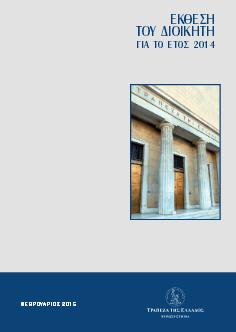Wyplosz, C. (2015) “ECB minutes: What they really tell us”, VoxEU Organisation, 02 Μαρτίου. The ECB has finally begun releasing the minutes of its policymaking meetings, something the world’s major central banks have been doing since the 1990s. This column asks whether the publication of these minutes increases ECB transparency. While providing useful information on analysis at the ECB, the minutes lack the details on the actual discussions and …Read More
A referendum on Britain’s EU membership is a sure fire way to encourage the breakup of the UK
Murkens, J. (2015) “A referendum on Britain’s EU membership is a sure fire way to encourage the breakup of the UK“, LSE EUROPP, 02 Μαρτίου. David Cameron has pledged to hold a referendum on the UK’s EU membership if his Conservative party wins a majority at the British general election in May. Jo Murkens writes on the impact an EU referendum would have on the UK’s place in Europe …Read More
Potential growth rates and the working of SGP fiscal rules
Cottarelli, C. (2015) “Potential growth rates and the working of SGP fiscal rules“, VoxEU Organisation, 02 Μαρτίου. The European Commission has clarified the flexibility in existing Eurozone fiscal rules. This column argues that the emphasis on structural rather than headline deficits is desirable but requires identification of potential growth rates. The way the Commission currently estimates potential output yields potential growth estimates that are very low. Thus, a year …Read More
Germany is not a model for Europe – it fails abroad and at home
Mitchell, B. (2015) “Germany is not a model for Europe – it fails abroad and at home“, Billy Mitchell Blog: Modern Monetary Theory … macroeconomic reality, 02 Μαρτίου. Some time ago I wrote a blog – The German model is not workable for the Eurozone (February 3, 2012) where I outlined why Germany’s export-led growth strategy could not be a viable model for the rest of the Eurozone nations. …Read More
The critical junction – Unless Germany charts a new business course, it will lose out to the rest of the world economy
Görlach, Α. (2015) “The critical junction – Unless Germany charts a new business course, it will lose out to the rest of the world economy“, The European Magazine, 02 Μαρτίου. Sigmar Gabriel lives in the 19th century. For the German Minister for Economic Affairs, the list of what matters isn’t long: industry, German cars and so forth. Digital innovation? New business models? Not for him. He is, rather, stirring …Read More
Έκθεση του Διοικητή για το Έτος 2014, προς την Ετήσια Τακτική Γενική Συνέλευση των Μετόχων στις 26 Φεβρουαρίου 2015
ΤτΕ: Έκθεση του Διοικητή για το Έτος 2014, προς την Ετήσια Τακτική Γενική Συνέλευση των Μετόχων στις 26 Φεβρουαρίου 2015, Τράπεζα της Ελλάδος – Ευρωσύστημα, Φεβρουάριος 2015. Έκθεση του Διοικητή κ. Γιάννη Στουρνάρα με Εντολή του Γενικού Συμβουλίου επί του Ισολογισμού της 31ης Δεκεμβρίου 2014 προς την Ετήσια Τακτική Γενική Συνέλευση των Μετόχων I ΑΠΟΛΟΓΙΣΜΟΣ ΧΡΗΣΕΩΣ 2014 1 ΑΠΟΤΕΛΕΣΜΑΤΑ ΧΡΗΣΕΩΣ 2014 Τα κέρδη της Τράπεζας στη χρήση 2014 …Read More
‘Foreign’ Money and ‘Austerity’ Haven’t Caused Greek Stagnation
Jerry, J. (2015) “‘Foreign’ Money and ‘Austerity’ Haven’t Caused Greek Stagnation“, Real Clear Markets News Site, 26 Φεβρουαρίου. The on-going “Greek Financial Crisis” is chock full of lessons about the nature of the entity that serves the functions of money in an economy. Historically, people have chosen to use as money everything from notched wooden sticks to metal coins to pieces of paper printed by governments. When alternatives have …Read More
Credit supply and the housing boom
Justiniano, A., Primiceri, G. & Tambalotti, A. (2015) “Credit supply and the housing boom“, VoxEU Organisation, 27 Φεβρουαρίου. There is no consensus among economists on the forces that drove the historical rise of US house prices and household debt that preceded the Global Crisis. In this column, the authors argue that the fundamental factor behind that boom was an increase in the supply of mortgage credit. This rise was …Read More
Debt sustainability and economic convergence of Euro-area Member States: Challenges and Solutions
Mauro, P. (2015) “Debt sustainability and economic convergence of Euro-area Member States: Challenges and Solutions“, European Parliament, Directorate General for Internal Policies – Economic Governance Support Unit, Φεβρουάριος. Abstract The Eurozone is at risk of economic stagnation and the crisis has led to the most pervasive and pronounced increase in government debt-to-GDP ratios since the Second World War. Member countries are facing vastly differing economic growth rates, with some …Read More
Greece’s stance against crippling austerity is a fight to save all Europe
Weisbrot, M. (2015) “Greece’s stance against crippling austerity is a fight to save all Europe“, Tribune News Service, 26 Φεβρουαρίου. Greece has been dragged through a lot of mud in the media over the past few years because previous governments over-borrowed, and that contributed to the initial crisis that – we should remember – Spain, Portugal, Italy and almost everyone else in the Eurozone had to go through. But …Read More






